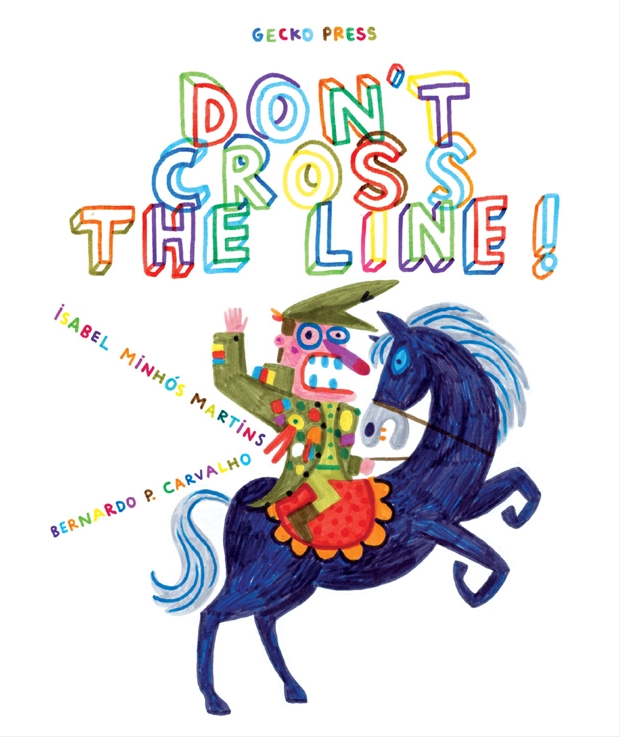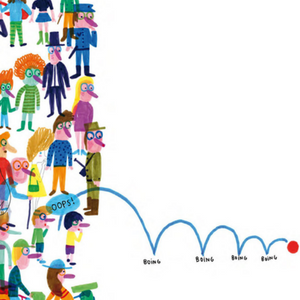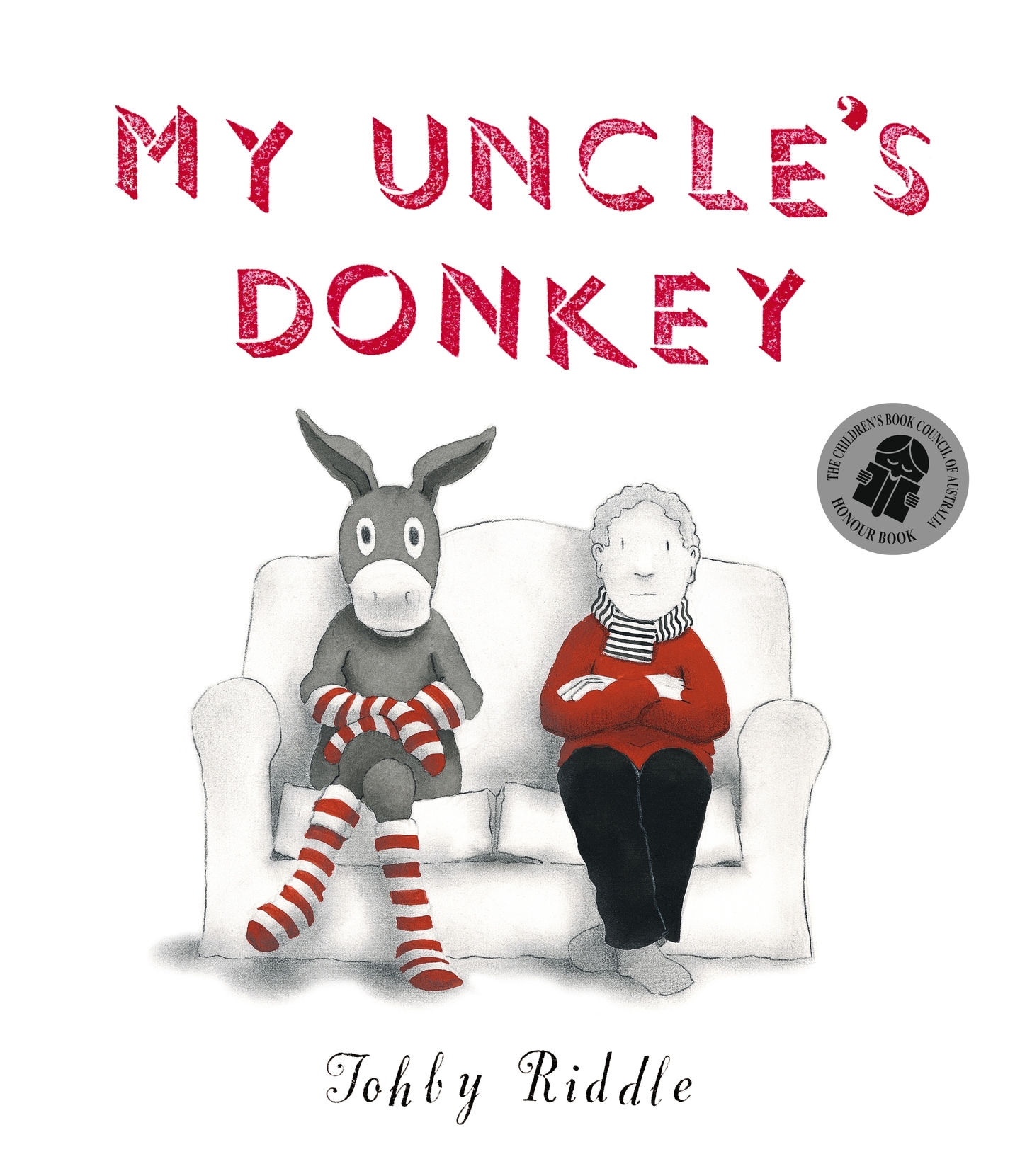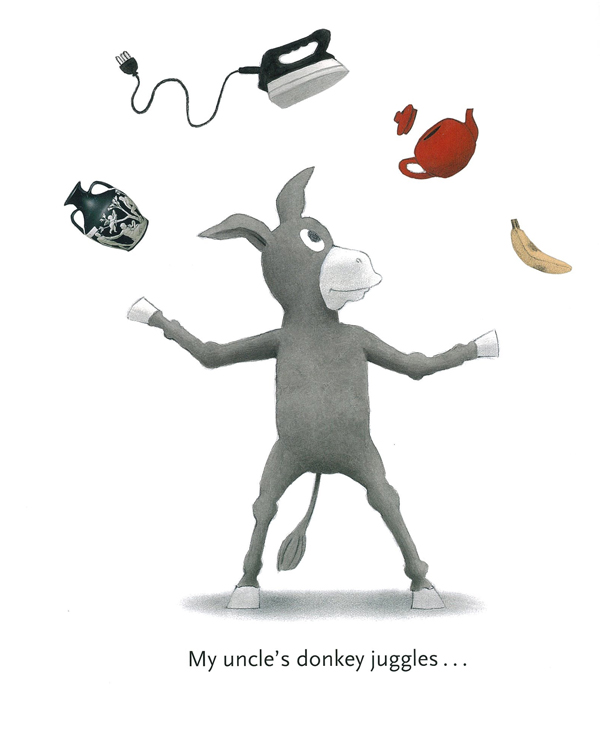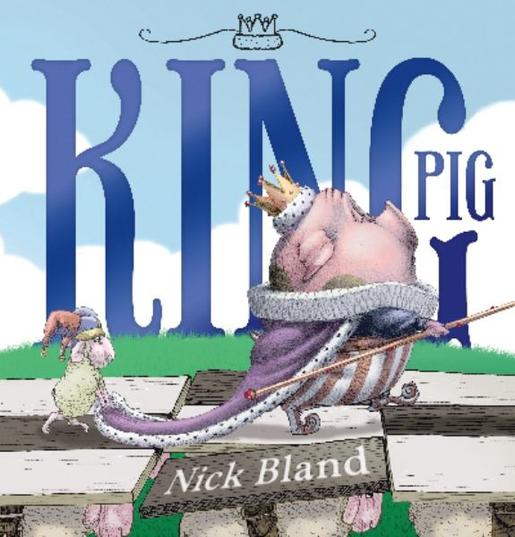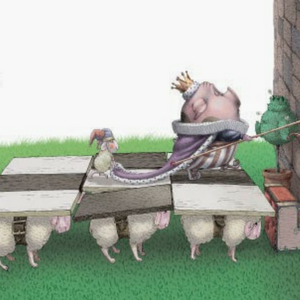3 fabulous stories about authority
/These three books are all about authority—they let us question who should have it and how it should be used. Those are important questions, as evidenced by the number of times, every day when I was working in junior kindy, that I answered the question: “Why?”.
This is a fun story starting with a guard who is not going to let anyone cross ‘the line’. We watch as more and more people enter each page until eventually a ball bounces across the line… and the children who own the ball are told that they may cross the line just-this-once. (But when is the last time that actually happened!?)
Of course everyone ends up crossing the line for one reason or other and in the end we discover that that's ok, it's just fine to cross the line.
The children in my junior-kindy group loved it when they have the opportunity to do something just-this-once and of course it never works out that way: it happens time and time again — and that's ok too.
It's important for children to question ‘rules’ because it helps them to understand why: maybe it’s because it’s dangerous, maybe they need to clean up when they're finished so someone else can play, maybe their bodies need rest. There are so many reasons we might say ‘no’ to something—and I try really hard to not do it too often—but until children or adults understand the why of it, they'll continue to find any excuse to do the very thing they’ve been told not to do.
One of the great things Don't Cross the Line does is encourage everyone who reads it to question authority and rules and look at the possible consequences.
Everyone loves this funny donkey. But the question that the last page leaves us with: ‘I wonder if my uncle’s donkey would be allowed in our house?’ is interesting. I do know that a donkey would definitely not be allowed in mine‼ And I think that would be most everyone’s initial response. But then we get thinking: 'Well … how is a donkey different to a dog?'
This is a great book for helping children figure out their own boundaries and come up with reasons to do things or not to do things on their own.
It's especially helpful for children in day-care because rules will be different at home. My Uncle's Donkey helps children realise that it’s ok to have different rules in different places.
3) KING PIG
King Pig is king of a herd of sheep and he uses his authority to push them around. They're forced to give up all their wool so that the king can have new clothes and do lots of other things we ourselves probably wouldn't like to do. And King Pig wonders why nobody likes him! When he asks, "What do I have to do to make you like me?", one little sheep suggests: “You could try being nice.” And the king makes a start at becoming a nicer leader—just because of that one answer.
King Pig is fantastic because it shows us both sides of authority: firstly, it shows that we can’t just boss people around and expect them to like us. And, just as importantly, it gets us thinking: would I like to be that sheep, would I like to be made to give up my wool to make new clothes for the King?
Mostly, King Pig leads to understanding that no one should have to blindly follow someone else—like a sheep—just because they are in charge. It helps children realise that they have thoughts and a voice and that they can use them.
Here's why I chose these three books together:
Authority matters for a smooth running society—or junior kindy group—but it's confusing for kids and adults alike. These three books show that there are different ways to understand authority and that it's worth working it all out, because everyone can and should be able to exercise some authority in their own life.
I hope you like them as much as my junior kindy kids did!
Don't Cross the Line!: Amazon - Book Depository - or you might like to read Kim's post
My Uncle's Donkey: Amazon - Book Depository - or you might like to read Kim's post
King Pig: Amazon - Book Depository


